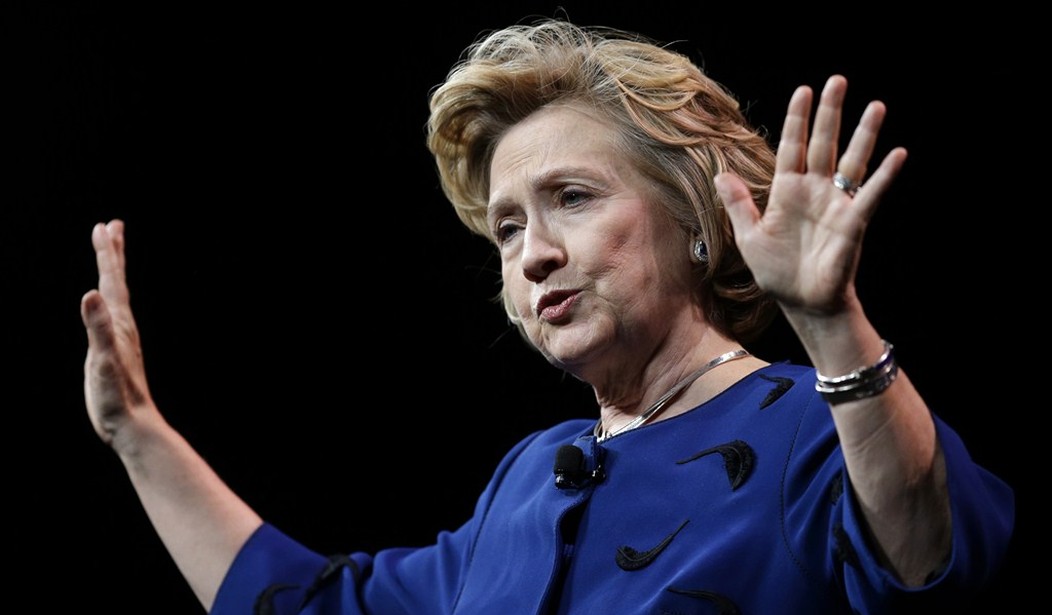The 2016 presidential election is shaping up as another close race, like the last four. From 2000 to 2012, both major parties' nominees received between 45 and 53 percent of the vote.
Historically, that's a narrow range, not seen since 1880-1892. It suggests something close to parity between two highly competitive parties.
Polls for the 2016 race, however, suggest strikingly different results. One would be a nightmare for Republicans. The other would be a nightmare for Democrats.
This column looks at the Republicans' nightmare (a later column will examine the Democrats' nightmare). In this scenario, the Democratic nominee is, as widely expected, Hillary Clinton.
The assumption is that she encounters no significant turbulence in winning the nomination -- a plausible extrapolation from current polling, which shows her miles ahead of any other Democrat.
Straight-line extrapolations from current general election polling also look very good for her.
Against various possible Republican opponents -- in alphabetical order, Jeb Bush, Chris Christie, Ted Cruz, Mike Huckabee, Rand Paul, Paul Ryan -- Clinton is averaging between 50 and 52 percent in the RealClearPolitics averages of recent polls, while the Republicans are averaging between 38 and 42 percent.
Due allowance should be made for the fact that none of these Republicans is well known nationally. It's reasonable to expect that a Republican nominee will run better if he puts on a competent campaign.
But Clinton is doing something in these polls that Democratic House candidates and, to a lesser extent, Democratic Senate candidates are having a hard time doing: running ahead of President Obama's job approval rating.
Recommended
That rating currently stands at 44 percent, well below Clinton's 51 percent average in national polls.
Clinton runs ahead of Obama though she too must be considered a supporter of the unpopular Obamacare. His current negative ratings on foreign policy don't seem to hurt her, perhaps because he was getting positive ratings on that during his first term, when she was secretary of State.
It seems that Clinton's standing reflects less current judgments on Obama and more on rosy retrospective ratings of the presidency of Bill Clinton. Voters may not be eager for a third Obama term, but might like a third Clinton term.
When you look at the relatively small number of statewide 2016 polls, you find that Clinton runs ahead of Republicans by double digits in the three electoral-vote-rich states of Florida (29 electoral votes), Ohio (18) and Pennsylvania (20), each of which voted only narrowly for Obama in 2012.
One reason for this might be that she is running stronger among older voters, since these states have relatively large elderly populations. These numbers suggest Clinton might carry these states by wider margins.
That would be a nightmare for Republicans if voters continue, as they have increasingly in recent elections, to vote straight tickets. That's because Republicans currently hold 17 House seats in Florida, 12 in Ohio and 13 in Pennsylvania.
Many of those Republicans might be in jeopardy if Clinton should turn out to lead down-ballot Democrats to victory. Democrats currently need to net only 17 seats for a House majority.
In addition, it seems likely that Clinton would run stronger than Obama in the Jacksonian belt stretching from West Virginia southwest to Bill Clinton's native Arkansas. That could also put in jeopardy some House seats that look pretty safe right now.
Then there are the Senate contests. The 2016 lineup, with many incumbents elected in the heavily Republican year of 2010, has many plausible targets for Democrats. Even if Republicans win a Senate majority this year, they could lose it in 2016.
You don't have to agree with Democratic analyst Brent Budowsky's suggestion that Hillary Clinton could win 45 states (Bill Clinton never won more than 32) to see the potential: a Democratic president, Democratic Senate and Democratic House.
Republicans' hopes of repealing and replacing Obamacare would be permanently dashed. The left wing of the Democratic Party could push farther than it has dared under Obama.
None of this is inevitable, of course. Hillary Clinton could get roughed up in the primaries and her record as secretary of state could be more a liability than an asset. The Republican nominee could easily run better than Republicans run now. Events could change attitudes.
I think this scenario is unlikely. But it's one plausible extrapolation from current polling.

























Join the conversation as a VIP Member